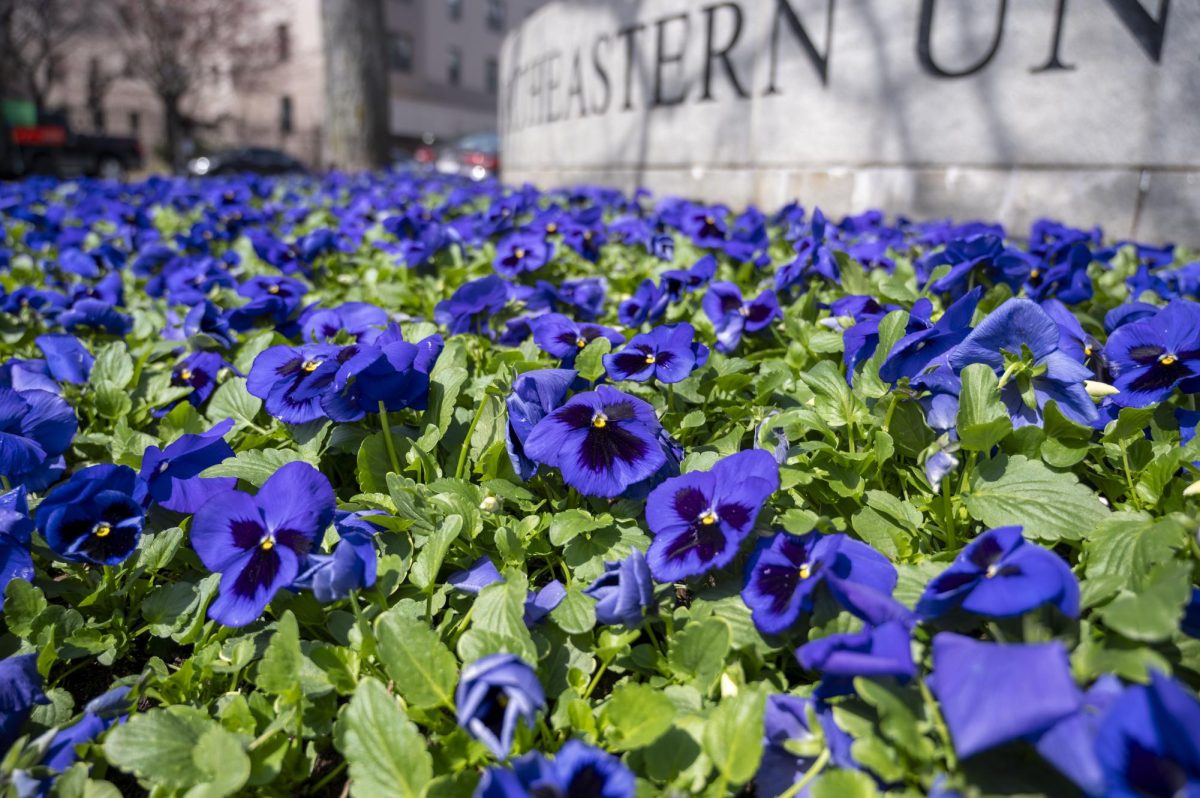For desperate New Englanders severely lacking Vitamin D, March 19, the spring equinox, marked a much-needed seasonal turning point. Finally, the darkness that kept so many of us sluggish and demoralized in the winter months has been pushed back to where it rightfully belongs.
In other words, spring is officially here — and Boston is coming back to life.
Although the chirping birds and budding trees seem to promise each of us a happier beginning, this season can also end up being a source of disappointment.
In order to truly enjoy the excitement and “newness” that spring has to offer, we must accept a harsh reality: On its own, spring will change very little about our lives.
But how have we been led to believe that it had this power in the first place?
High hopes for this season are deeply ingrained in our culture, even manifesting into the widely-recognized tradition of Groundhog Day. And this year, despite all his previous inaccuracies (rumor has it, his prediction accuracy rate is only 39%), Punxsutawney Phil seems to have finally gotten the hang of things. Emerging from his burrow in February to find no shadow, the famous woodchuck correctly predicted the onset of an early spring. Boston has been teased with plenty of upper-50-degree days since.
But even if you haven’t been keeping track of the calendar, or followed this Groundhog Day tradition, the invigorating presence of spring — and its appearance as a fresh new beginning for us — has become unavoidable.
Although the flowers have yet to bloom, our community has. With more outdoor activities available and hours to kill until it gets dark, the day’s possibilities now extend beyond a bland routine of commuting to school or co-op and back, all while trying to dodge sneaky patches of black ice and avoid going numb in the fingers.
Swept up by the high spirits brought on by warmer weather, students around campus seem more inclined to look up at each other, sometimes even to flash a quick smile, before heading on their way. As these friendly exchanges increase during the spring season, students begin to transform from isolated individuals into something resembling a real community.
Out in the sunlight, we’ve finally become moving, visible members of the city and our campus.
With this contagious air of joy and possibility, it truly does feel like spring can fix it all. But here’s the catch: Although spring rejuvenates the city and student body as a whole, this season often leaves individuals behind.
Once the dreaded allergies start to arrive, this season brings a person face-to-face with the fact that dust has been building up in their apartment. When it gets a bit too warm, spring will remind them that summer is approaching faster than expected — and that Boston’s ice cream scene will never quite live up to that from their childhood.
Even more sobering, as the spirit of change and newness starts to reverberate around campus, spring forces one to think about the future: that looming date of graduation or the sinking reminder that they lack summer plans worth sharing or a hometown situation worth returning to.
Coupled with a sudden inability to use winter as a scapegoat, these realizations can lead someone to wonder: Why am I not as happy as I should be?
I’ve spent many past springs dwelling on that question. Every year, I’d cling to a secret expectation that my life would change drastically between the months of March and May. By the time summer rolled around, I was supposed to have found that group of friends who “got” me, started embodying utmost mental and physical health and overcome the feeling of merely “going through the motions” — all without changing any of my habits in order to get there.
When the weather got warmer and this inevitably didn’t happen, I’d panic; spring is the fresh start where everything seems to count. If I couldn’t achieve my goals by then, could I ever?
My tendency to place too much faith in spring, however, was the symptom of a more widespread problem: The pressure our society puts on external things — a vacation, a self-help book and in this case, a season — to rapidly improve our lives, all by themselves.
This reliance comes from a deep-seated belief that we are not capable or trustworthy enough to change our circumstances or to persevere in spite of them. It’s scary to take this kind of ownership. Doing so means that we’ll have to step out of our comfort zones, and likely fail, in order to move toward the happiness, excitement and novelty that we are so often searching for.
Rather than face this discomfort, many of us just wait for spring to come, hoping that it will melt our worries away with the snow.
And then it doesn’t.
This year, let’s swap out unnecessary disappointment for something far sweeter. Instead of putting pressure on this beautiful season to change our lives and our mindsets, why don’t we simply take spring as it is?
I’m not claiming that we shouldn’t be optimistic about what’s to come. If the onset of sun happens to provide us some relief or inspires us to get a fresh start — whether it be picking up a daily jogging habit, beginning that creative project or switching up our routines to make room for adventure — then we’re all the better for it.
But we shouldn’t expect spring to provide these outcomes, nor take it as a sign of perpetual failure if they don’t immediately happen. Spring brings flowers, not solutions — those, we have to find ourselves. It’s just an extra blessing that ever since March 19, we don’t have to find them in the dark.
Samantha Denecour is a third-year English and political science combined major. She can be reached at denecour.s@northeastern.edu.


















